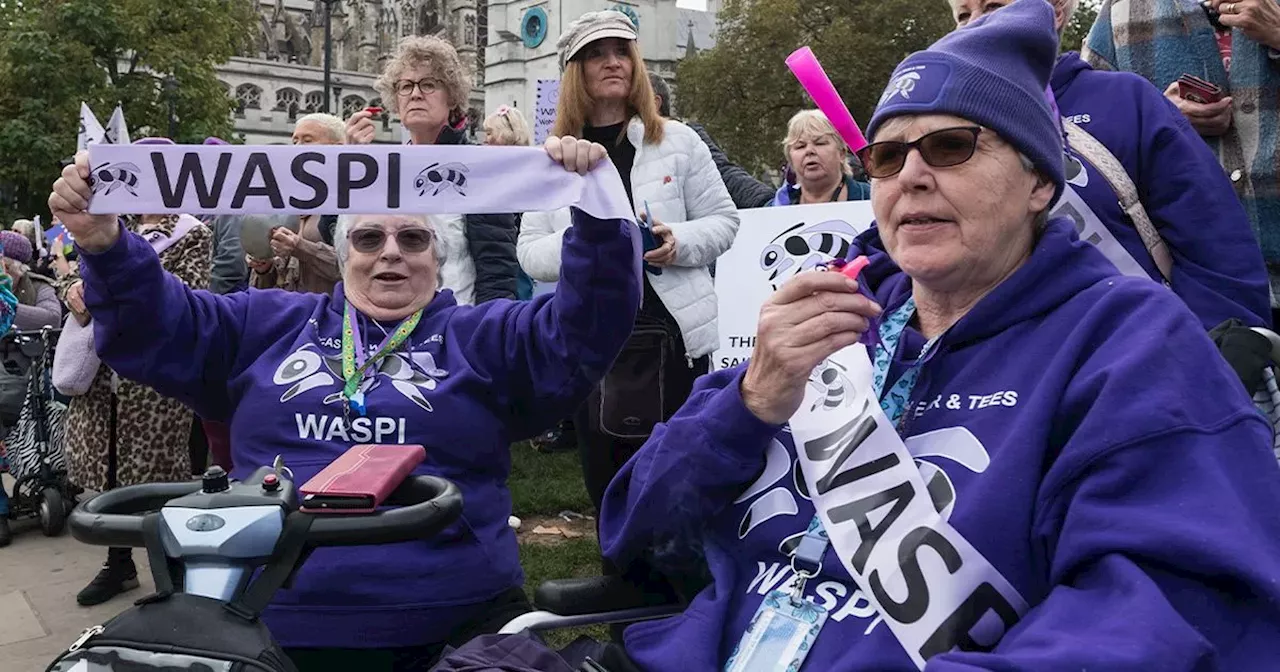Labour has faced criticism from MPs for its decision not to compensate the WASPI generation of women who experienced an increase in their state pension age without proper notification. The debate in Westminster Hall highlighted the concerns of women born in the 1950s who feel they were unfairly treated by the DWP. Labour's Work and Pensions Secretary, Torsten Bell, defended the decision, stating that it was based on evidence and that the government is committed to improving communication surrounding state pension changes.
Labour has issued a fresh statement defending its decision not to compensate the WASPI (Women Against State Pension Inequality) generation of women. MPs gathered for a debate in Westminster Hall this week (January 15), with many members who support the women getting payouts blasting the Government 's decision last month not to have a compensation scheme. One MP hit out at the decision as an 'absolute betrayal' of the women.
Campaigners have vowed to continue fighting for compensation, as they claim the DWP did not properly inform the 1950s-born women of the increase of their state pension age from 60 to 66 and then 66, with many unaware of the sudden jump up. The Parliamentary and Health Service Ombudsman previously found there was 'maladministration' in how the changes were communicated, and in a report published in March 2024, it recommended payouts of between £1,000 and £2,950. Newly appointed Work and Pensions Secretary, Torsten Bell, went along to the debate to explain Labour's decision not to compensate WASPI women. He was fresh in the job having taken up the ministerial position from Emma Reynolds this week, after she moved over to become Economics Secretary, taking up the role previously held by Tulip Siddiq. This is the full transcript of Mr Bell's statement, with some breaks for where there were questions and comments from MPs: 'I thank the right honourable member for South Holland and The Deepings (Sir John Hayes) for securing a debate on this important topic. I also want to thank him, if slightly less enthusiastically, for its timing, on my first day in office, which also explains the delay raised by the right honourable member for Torbay (Steve Darling) in answering his named day question . 'I am under no illusions that everyone in this Chamber, or almost everyone in this Chamber, will agree with everything that I am about to say. But all of us listening to this debate and to the important points raised by right honourable members have benefited from it. 'We all recognise the context for this debate, which is the squeeze on living standards that has affected women born in the 1950s just as it has the entire country. These are issues that are important to many women, including my aunt in west Wales, born in 1955, who pays particularly close attention to these issues. 'I spoke to her last night as part of my preparation for this debate and she would agree with the points made by the members for Lagan Valley (Sorcha Eastwood), and for Clapham and Brixton Hill (Bell Ribeiro-Addy), that women of that generation have faced many difficulties and particular discrimination. People have spoken powerfully about that. 'It is right that today’s debate gives those women’s long-held concerns the consideration they deserve, just as it was right that the Government did so in making the decision we are debating today. That is also why my predecessor was the first minister in eight years to meet WASPI limited. 'It’s why the Ombudsman’s investigations and reports were considered by the Government in detail, and why we look closely at what Parliament has said. So while I understand that the outcome was disappointing for many, the decision was based on the evidence. 'Before I set out how we reached that decision, as the member for East Wiltshire (Danny Kruger) requested, it is worth reiterating the point that several Members have raised: that the Ombudsman’s report was not about the decision to increase the state pension age for women in 1995, or to accelerate those increases in 2011. 'Those decisions were taken by Parliament, including by many of the members here today, and they were upheld by the Court of Appeal in 2020.' 'The Ombudsman’s investigation concerned the more specific question of how changes in the state pension age were communicated to women, like my aunt, born in the 1950s. The Government started sending personalised letters in April 2009, but the Ombudsman concluded we should have started 28 months earlier. 'The Secretary of State has apologised for that delay. We are determined to learn the lessons so that we avoid similar mistakes happening again. Firstly, we will work with the Ombudsman to develop a detailed action plan, identifying and addressing lessons from this and other PHSO investigations. 'Secondly, we are committed to providing clear and sufficient notice of any changes in the state pension age so that people can plan for their retirement. Thirdly, the Secretary of State has directed the Department to develop a clear and transparent communication strategy for state pension changes. 'Work on this has already begun. This will build on changes that are already under way, like our online 'Check your State Pension forecast' service, which provides a forecast of the level of your state pension, but also information about when you can take i
WASPI State Pension Labour Party Government Parliament Ombudsman Women's Rights
United Kingdom Latest News, United Kingdom Headlines
Similar News:You can also read news stories similar to this one that we have collected from other news sources.
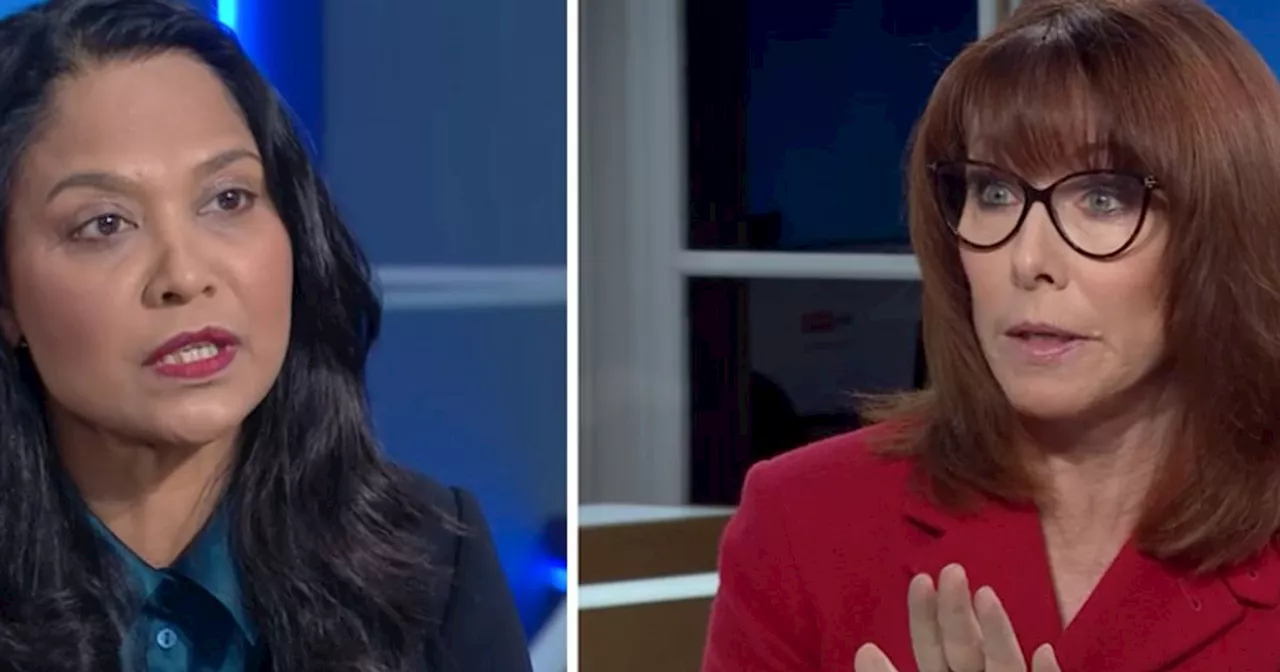 Government Defends Against Waspi Women Compensation DemandsA group campaigning for compensation for women affected by the state pension age rise to 66 is facing pushback from the government. While a parliamentary ombudsman recommended a £10.5bn compensation scheme, the government is arguing against it, citing the cost and suggesting the impact on many women would have been minimal.
Government Defends Against Waspi Women Compensation DemandsA group campaigning for compensation for women affected by the state pension age rise to 66 is facing pushback from the government. While a parliamentary ombudsman recommended a £10.5bn compensation scheme, the government is arguing against it, citing the cost and suggesting the impact on many women would have been minimal.
Read more »
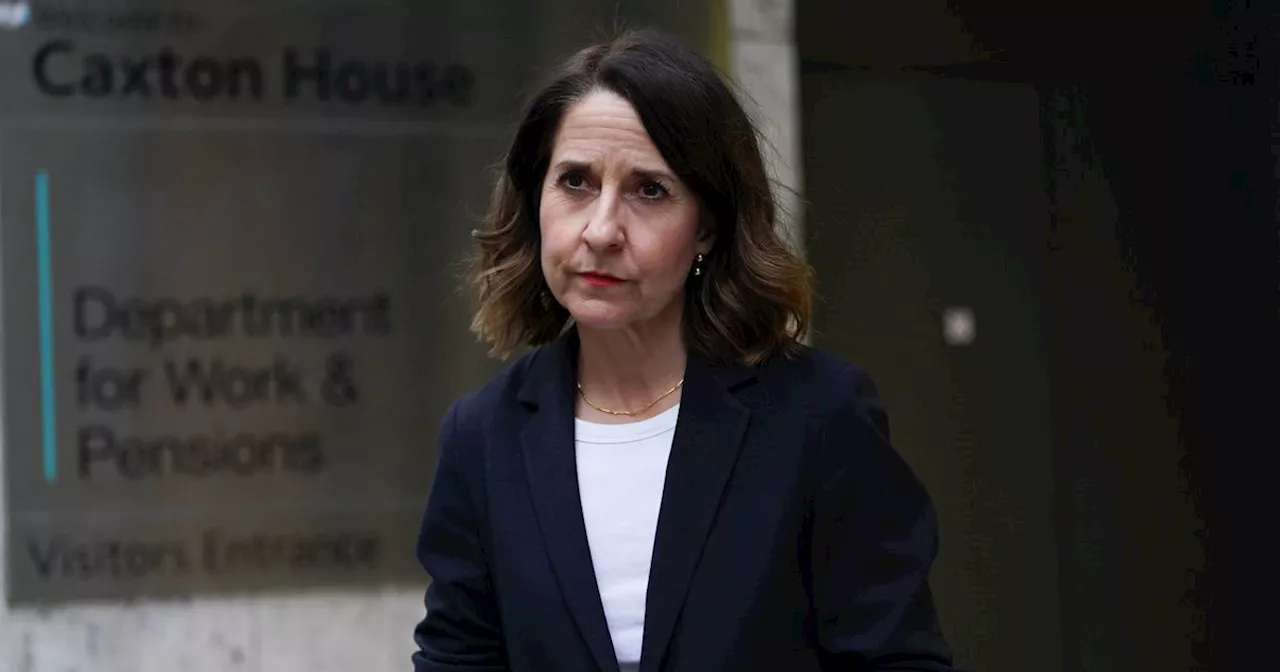 Labour Government Betrays WASPI Women by Ignoring Compensation RecommendationThe UK Labour Government has faced criticism for refusing to award compensation to WASPI women, despite a recommendation from the Parliamentary and Health Service Ombudsman.
Labour Government Betrays WASPI Women by Ignoring Compensation RecommendationThe UK Labour Government has faced criticism for refusing to award compensation to WASPI women, despite a recommendation from the Parliamentary and Health Service Ombudsman.
Read more »
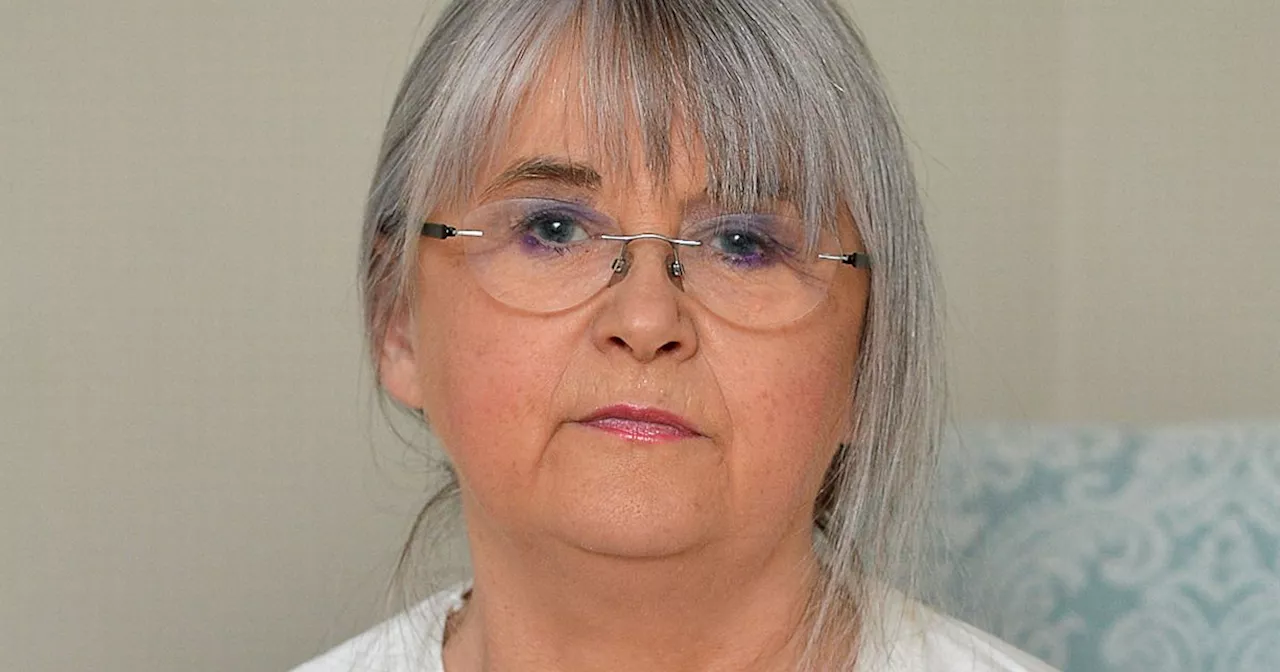 WASPI Women Denied Compensation by Labour GovernmentLabour government rejects calls for financial compensation for WASPI women, citing cost concerns. Campaigners vow to continue fight for justice.
WASPI Women Denied Compensation by Labour GovernmentLabour government rejects calls for financial compensation for WASPI women, citing cost concerns. Campaigners vow to continue fight for justice.
Read more »
 Labour MPs Criticize Government's Refusal to Compensate Waspi WomenKeir Starmer and other Labour MPs are facing criticism from their own party after the government decided not to provide billions of pounds in compensation to women affected by changes in the pension age. The Waspi campaigners, who previously enjoyed support from senior Labour figures, are now calling for a reconsideration of the decision.
Labour MPs Criticize Government's Refusal to Compensate Waspi WomenKeir Starmer and other Labour MPs are facing criticism from their own party after the government decided not to provide billions of pounds in compensation to women affected by changes in the pension age. The Waspi campaigners, who previously enjoyed support from senior Labour figures, are now calling for a reconsideration of the decision.
Read more »
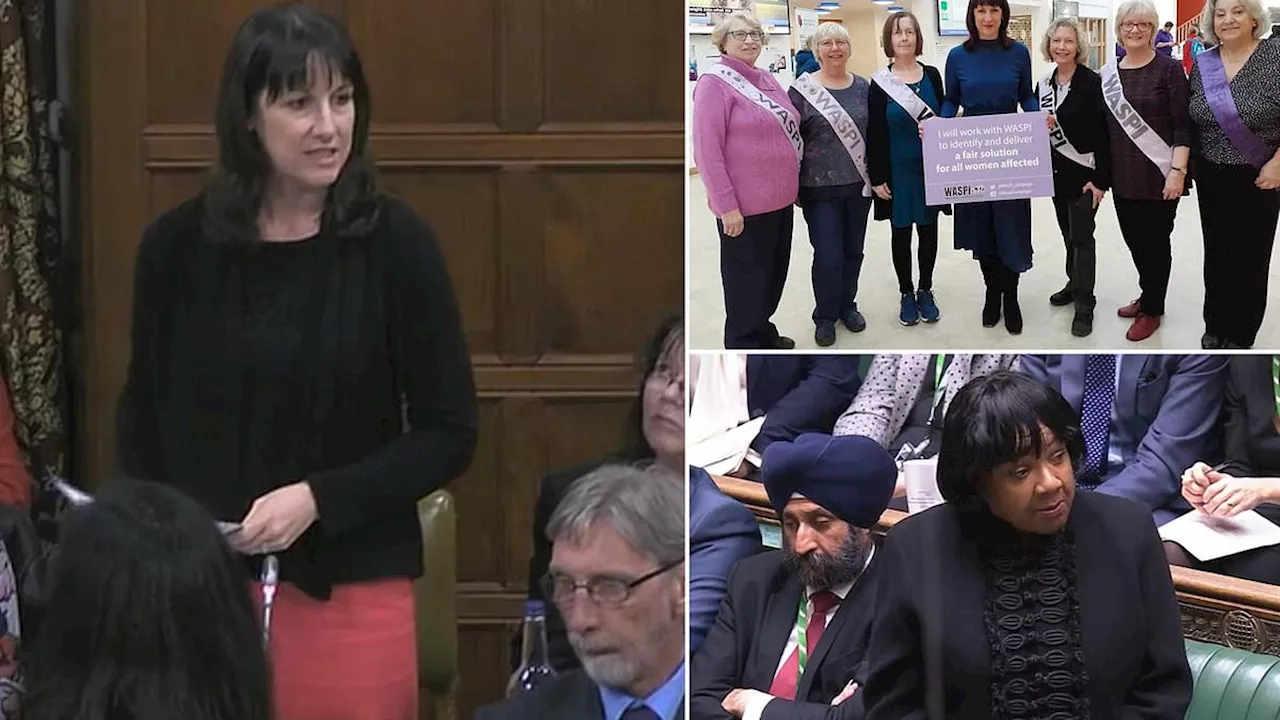 Labour Leader Starmer Faces Backlash Over Pension Compensation Block for Waspi WomenSir Keir Starmer is facing increasing criticism for refusing compensation to millions of Waspi women, despite previous Labour support for their cause. The decision to forgo a £10.5 billion package is drawing ire from within the party, with some MPs calling for a vote or reconsideration. Chancellor Rachel Reeves, who once campaigned alongside her mother against the changes to the state pension age, now faces accusations of breaking a promise to Waspi women.
Labour Leader Starmer Faces Backlash Over Pension Compensation Block for Waspi WomenSir Keir Starmer is facing increasing criticism for refusing compensation to millions of Waspi women, despite previous Labour support for their cause. The decision to forgo a £10.5 billion package is drawing ire from within the party, with some MPs calling for a vote or reconsideration. Chancellor Rachel Reeves, who once campaigned alongside her mother against the changes to the state pension age, now faces accusations of breaking a promise to Waspi women.
Read more »
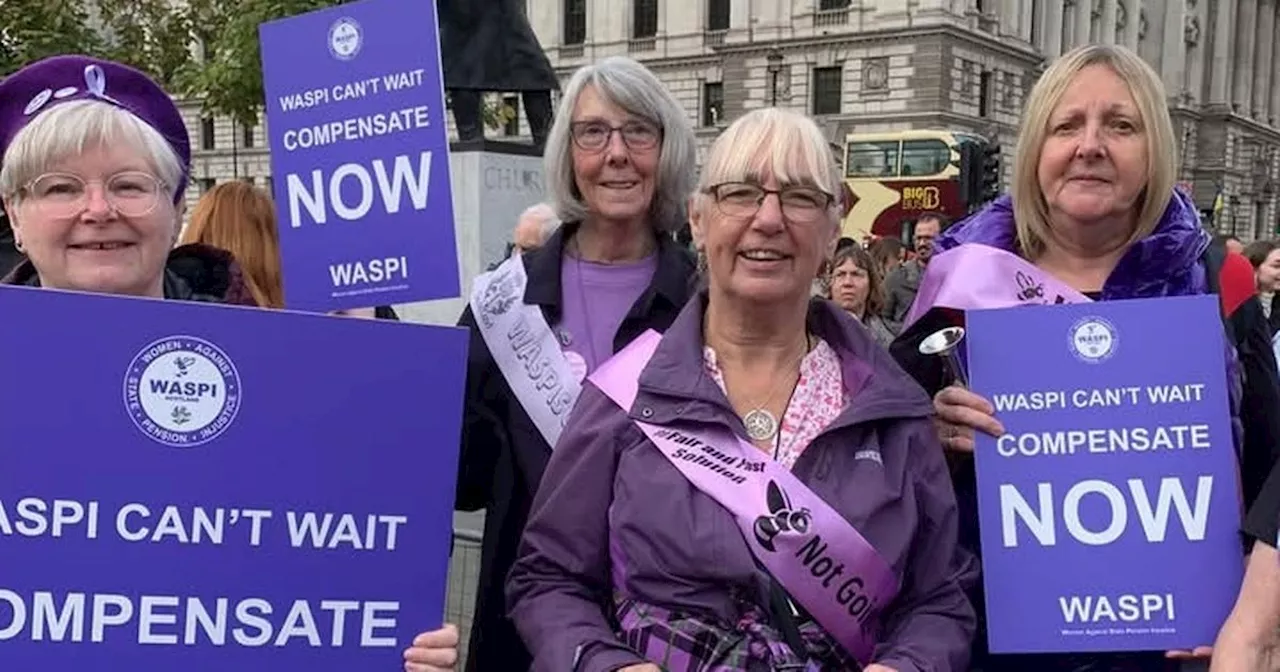 WASPI Women Feel Betrayed as Labour Government Rejects CompensationCatherine Scott, a former postmistress from Perthshire, expressed anger and betrayal after the Labour government rejected recommendations to compensate WASPI (Women Against State Pension Inequality) campaigners affected by changes to the state pension age.
WASPI Women Feel Betrayed as Labour Government Rejects CompensationCatherine Scott, a former postmistress from Perthshire, expressed anger and betrayal after the Labour government rejected recommendations to compensate WASPI (Women Against State Pension Inequality) campaigners affected by changes to the state pension age.
Read more »
